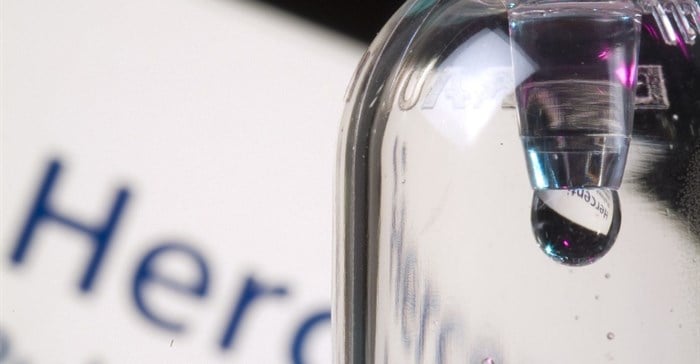






The cost of Herceptin
One of these drugs is trastuzumab (sold as Herceptin in South Africa), used to treat the HER2 positive form of breast cancer, an aggressive subtype with a higher risk of recurrence and metastatic spread to sites such as liver, lungs, bone and sometimes brain.
Of the 8,000 women who develop breast cancer in South Africa each year, 15-20% develop HER2 positive.
Yet, Cancer Alliance South Africa and other advocacy groups say many women in South Africa who need trastuzumab can't access it due to the high price charged by the drug's developer, Roche. In the private sector, a 12-month course of Herceptin costs approximately R485,800, or more if higher dosing is required. Considering that only around 14% of South Africans are on medical aid, the percentage of women with HER2 positive who have access to the drug is tiny.
In addition, the cancer benefit also has to cover specialist consultations and other treatment expenses, and with the high cost of the cancer drug, the patient is going to have to make a co-payment. "So basically people are going into debt to pay for their treatment when they thought they were covered," says Salome Meyer of Cancer Alliance.
“Roche says the price is so high because they have to recoup the research and development cost of the drug. That’s nonsense. They recouped that money long ago,” she says.
Ironically, trastuzumab is on the World Health Organisation’s Essential Medicines list where “every medicine listed has been vetted for efficacy, safety and quality, and that there has been a comparative cost-effectiveness evaluation with other alternatives in the same class of medicines”.
“Roche is able to charge such a high price as it holds multiple patents on the drug, which may block cheaper biosimilars from being sold in South Africa until 2033. This (the inquiry) is a major victory in our struggle to ensure that all people in South Africa can access the medicines they need to stay healthy and alive,” says the Fix the Patent Laws coalition.
“Earlier this year our coalition launched the Tobeka Daki Campaign for Access to Trastuzumab during a global day of action. The campaign was named after Tobeka Daki – a fearless comrade and cancer activist who died of breast cancer in November 2016. Even though Tobeka’s doctor thought she should be provided trastuzumab, Tobeka could never access the medicine due to its high price – over half a million rand per treatment course in the private sector.”
Roche said in February that the patents on trastuzumab relate to specific technologies which were invented during its clinical development; these, however, do not intrinsically preclude trastuzumab biosimilars from entering the market. "Roche will not necessarily oppose the entry of biosimilar versions of trastuzumab, provided that these medicines meet the appropriate regulatory standards as set out by the South African Medicines Regulatory Authority (Medicines Control Council).
"We do not believe that dropping patents will result in equitable access to trastuzumab, but rather we aim to improve access in a manner that delivers sustainable improvements to healthcare today while allowing us to continue to invest in new medical innovations. As a result, the discussion on patents is not relevant in the current context of increasing access to trastuzumab."
Last week, the Competition Commission announced that it's launching an inquiry into Roche, as well as Aspen Pharmacare, Africa's largest generic drug maker and US company Pfizer, on the cost of their cancer medications in South Africa. And one of the drugs under review Competition Commission is Herceptin.
The Board of Healthcare Funders of Southern Africa (BHF) welcomes the inquiry, saying that South Africa is in urgent need of a scientific approach to determine how a medicine is priced, and when a medicine is priced excessively and thus unaffordable.
“Furthermore, the Medicines Act allows the set price in the private sector to be different to the state price for medicines as it is acceptable practice that the standardised private price of all drugs subsidises the low state price for the majority of poor or indigent South Africans.
“However, we have seen the subsidised cost of certain biologics to vary by more than 500% when compared with private sector costs – these price differentials are simply too enormous to overlook and demand deeper investigation,” explains Dr Rajesh Patel, head: benefit and risk at the BHF.
Roche said in February that it was in negotiation with the Department of Health and could not disclose the pricing of the drug. However, they said: “Trastuzumab is already available in the public sector on a buy out at a reduced price. The price which is currently being negotiated offers the department a further reduction on the current price in the public sector, and is on par with collaborative options adopted in low-income countries such as India.”
